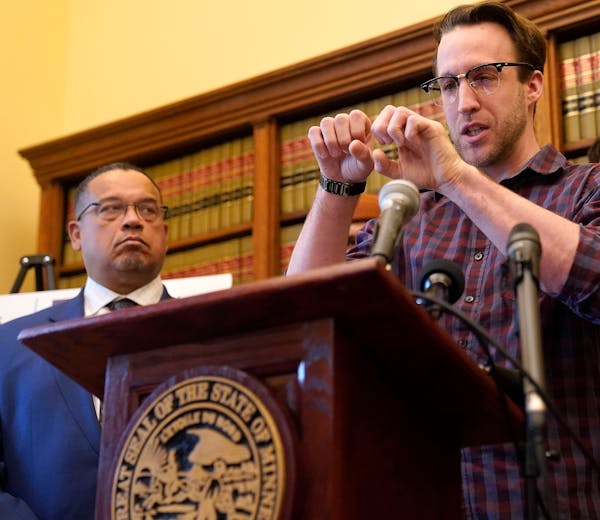With Minneapolis already reporting 4,125 car thefts ahead of the typical summer uptick in crime, Hennepin County's top prosecutor announced new efforts to address the crisis of youth stealing cars.
In back-to-back news conferences Wednesday at the Hennepin County Government Center, Hennepin County Attorney Mary Moriarty unveiled a collaboration with law enforcement and social workers. Meanwhile, activist and attorney Nekima Levy-Armstrong hosted a separate event after to say kids are crying out for help and more funding for community-based programming is needed to give youth something to do besides joyride in stolen cars.
Moriarty is hoping to intervene with at-risk youth and prevent crime before it occurs.
"We cannot ignore the early warning signs that a youth is headed toward behaviors that might escalate," she said.
As part of her office launching a new focused collaboration with law enforcement, there is a hotline that Hennepin County families can call for support. Moriarty said a social worker will arrive at their home within an hour to help with mental, behavioral or emotional issues with the aim of de-escalating the situation.
Services are free and available every day between 10 a.m. and 10 p.m. by calling 612-979-9511. Staff will offer ongoing stabilization after the first 72 hours by providing optional eight-week culturally specific services.
Flanked by parents, educators and activists, Levy-Armstrong said kids as young as 12 who don't know how to drive are being chased by police — including in a pursuit that ended with a crash on the north side last week.
"This has been going on for far too long," Levy-Armstrong said. "We do not condone what has been happening with our young folks ... We need all hands on deck to address what we feel is a crisis that is happening in our community."
Levy-Armstrong applauded Moriarty's new initiative, but she doesn't want a call for help to turn into child protective services (CPS) potentially being called and causing further problems for a family by taking a child away.
The collaboration includes regular intervention meetings between the attorney's office and law enforcement agencies — five have been held so far — to identify youth in need of services. CPS and truancy teams are also there to learn about high-risk youth they believe are engaging in auto theft-related behaviors.
Moriarty said other changes to address youth auto theft involve the courts adding to their judicial review detention decisions on whether to hold youth charged with fleeing police. This charge wasn't previously part of judicial review.
There's also a faster turnaround for charging decisions — within one day and a first court appearance within three days if a child was admitted to the juvenile detention center but ultimately released. If the youth is not booked at the detention center, a charging decision will be made within five business days when historically, she said this took weeks or even months.
Moriarty said it's difficult to charge youth for auto theft for a number of reasons. Sometimes officers don't see who is actually driving, or the driver will say they didn't know the vehicle was stolen. And if they rely on DNA evidence to determine that, it is time-consuming to get such evidence. She also said kids wear face masks, making it harder to identify the driver.
Even if youth are charged, she said, they are frequently found incompetent by psychologists to go through court proceedings.
Minneapolis clocked 2,100 car thefts at this time last year. The city has doubled that.
But at the same time, the attorney's office has charged a fraction of those thefts, with 465 related cases. Nearly 70% of those are within the juvenile prosecution division.
Moriarty said despite this widespread problem, youth committing these crimes account for less than 3% of the population. And it's often the same youth engaging in repeat behaviors.
Youth auto theft has been a nationwide problem ever since a TikTok video went viral in 2021 showing kids how to hotwire Kias and Hyundais in as little as 90 seconds.
Levy-Armstrong said Black and brown youth not only experienced the COVID-19 pandemic upending school and their social lives, but they were also at the epicenter of global unrest from George Floyd's murder.
All this has impacted mental health, finances and emotional health "for too many families that were already struggling."
"We need to get at the root of why these things are happening," she said. "We want to see a change happen in the summer of 2023."

Want to share info with the Star Tribune? How to do it securely

'Safe recovery sites' would offer syringes, naloxone and more to people using drugs. The plan could be in peril.
New Minnesota GOP leaders seek peace with party's anti-establishment wing

Who is Republican Lisa Demuth, Minnesota's first House speaker of color?

